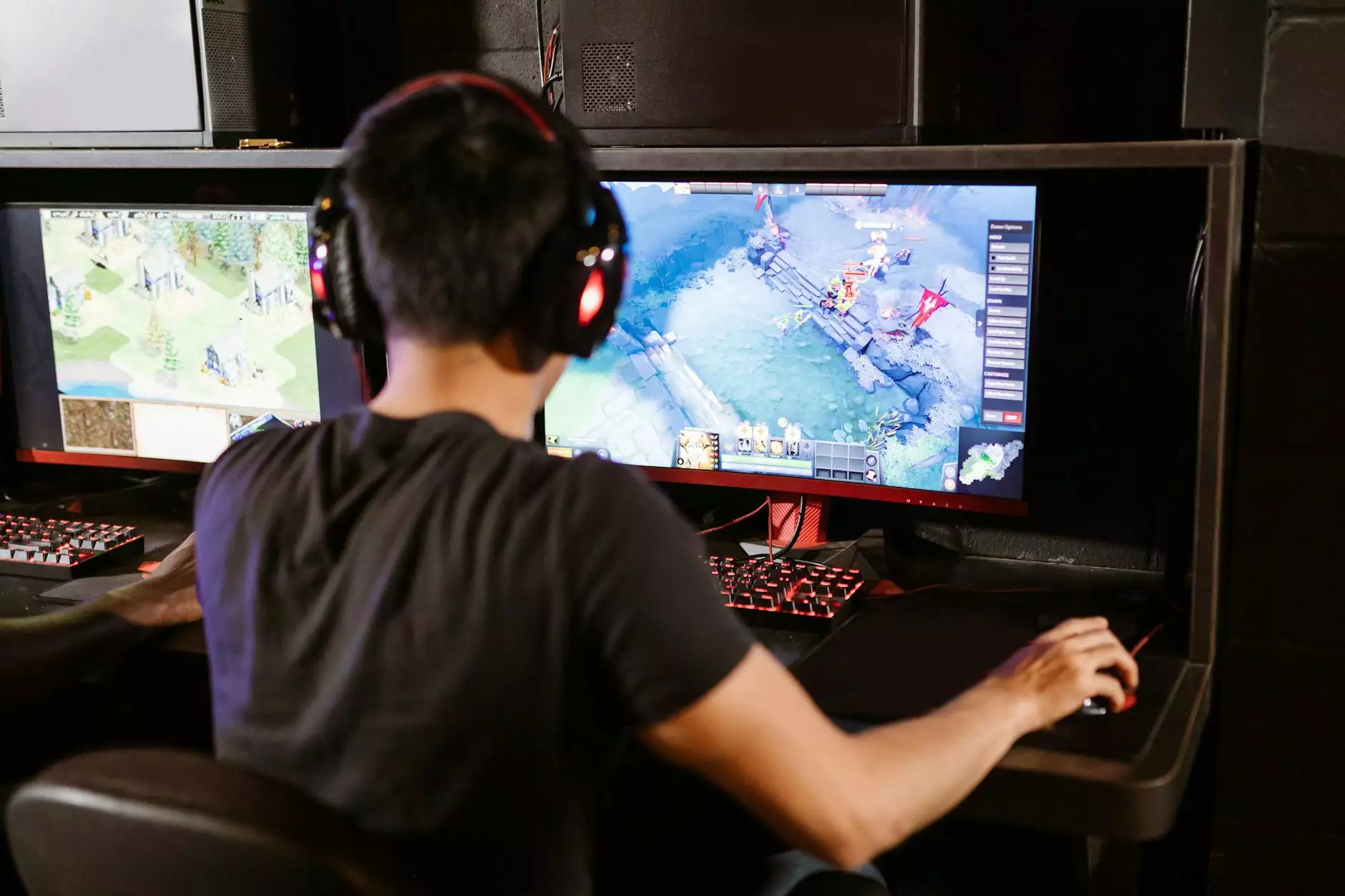Porting Games to Android: A Comprehensive Guide

Understanding Game Porting
Porting games to Android involves adapting a video game so that it can be played on Android devices. This process requires careful planning, technical knowledge, and an understanding of the target audience. With the explosive growth of mobile gaming, porting games to Android has become a lucrative opportunity for developers and studios alike.
The Need for Porting Games to Android
As one of the largest mobile operating systems globally, Android offers a massive audience for game developers. By porting games to Android, developers can:
- Increase Revenue Potential: With millions of Android users, games can reach a broader audience, increasing potential sales and in-app purchases.
- Utilize Cutting-Edge Technology: Android supports advanced graphics and gameplay mechanics, allowing developers to enhance existing games.
- Engage with a Diverse Audience: Android users come from various backgrounds and preferences, giving developers insight into different gaming trends.
- Expand Brand Recognition: Successful ports can boost a developer's reputation and create new marketing opportunities.
Market Research: Identifying Opportunities
Before embarking on the journey of porting games to Android, it is essential to conduct thorough market research. Key steps include:
- Analyzing Competitors: Identify successful games within your genre that are already on Android and analyze what makes them successful.
- Understanding User Preferences: Look into forums, reviews, and surveys to gather insights into what Android users enjoy in games.
- Identifying Technical Requirements: Assess the technical specifications of popular Android devices to ensure your game meets performance standards.
The Technical Demand of Porting Games
Porting a game to Android is not merely a matter of copying and pasting code. It requires a deep understanding of both the original platform and the Android ecosystem. Here's a detailed look at the technical aspects involved:
1. Code Adaptation
Most games are built using platforms like Unity, Unreal Engine, or proprietary engines. During the porting process, developers must adapt the game’s code to work within the constraints and capabilities of Android. This can mean:
- Rewriting code for compatibility with Android APIs
- Optimizing graphics for various screen sizes and resolutions
- Ensuring the game runs smoothly on the lower-end hardware common among many Android devices
2. User Interface Redesign
Mobile gaming requires a different approach to user interface design compared to console or PC gaming. Developers need to consider:
- Touchscreen controls versus keyboard/mouse inputs
- Simplifying menus and buttons for easy navigation
- Scaling UI elements for different screen sizes
3. Performance Optimization
Android devices vary widely in processing power and memory. Hence, developers must:
- Optimize the game to run efficiently on lower-spec devices
- Test performance thoroughly across different Android versions
- Employ asset compression techniques to reduce file size without compromising quality
Testing and Quality Assurance
Once a game is ported, rigorous testing is vital to ensure that it performs flawlessly on Android devices. Testing should cover:
- Functionality Testing: Ensure all game features work correctly.
- Compatibility Testing: Verify the game runs on various Android versions and devices.
- Performance Testing: Monitor the game's performance and adjust if necessary.
- User Experience Testing: Gather feedback from users to make necessary adjustments.
Marketing Your Ported Game
After successfully porting games to Android, the next critical step is marketing. A strategic marketing plan can make or break the success of a ported game. Consider the following strategies:
1. Build Hype Prior to Launch
Creating anticipation for your game can boost downloads upon release. Consider:
- Teasing gameplay screenshots and trailers
- Engaging with potential players through social media
- Creating a dedicated landing page with information and demos
2. Leverage Social Media and Influencers
Utilizing social media platforms can significantly increase visibility. Collaborating with influencers in the gaming community can provide authentic exposure:
- Sharing gameplay videos
- Hosting contests and giveaways
- Encouraging user-generated content
3. App Store Optimization (ASO)
Optimizing your app's listing on Google Play Store is vital for discoverability:
- Using relevant keywords such as "porting games to Android" in your description
- Creating eye-catching thumbnails and game trailers
- Gathering and responding to user reviews to boost credibility
Case Studies: Successful Game Ports to Android
Several games have thrived after being ported to Android. Here are a couple of notable examples:
1. Monument Valley
Originally developed for iOS, Monument Valley's enchanting gameplay and visuals translated perfectly to Android. Its success can be attributed to:
- Visual appeal tailored for mobile users
- Intuitive controls optimally designed for touchscreen play
2. Fortnite
The popular battle royale game faced challenges during its transition to Android due to its high graphics and performance demands. However, Epic Games managed to:
- Release an optimized version
- Implement exclusive features to attract attention
Challenges in Porting Games to Android
The process of porting games to Android comes with its set of challenges:
1. Fragmentation
The Android ecosystem is notoriously fragmented. There are numerous devices with varying specifications, making it challenging to ensure compatibility and performance.
2. Monetization Strategies
Implementing effective monetization strategies can be difficult. Developers need to consider:
- In-app purchases versus ads
- The balance of user experience versus revenue generation
3. Limited Screen Real Estate
Designing for small screens requires creativity and efficiency to ensure a satisfactory user experience. Developers often face constraints that can impact gameplay and readability.
Future Trends in Game Porting
The future of game porting to Android looks promising with numerous trends emerging. Some noteworthy trends include:
- Cloud Gaming: As cloud technology advances, games can be streamed on lower-end devices, expanding the player base.
- Augmented Reality (AR) Integration: With platforms like ARCore, integrating AR into games can enhance gameplay experiences.
- Crossover Content: Collaborations between popular franchises can drive interest and porting efforts.
Conclusion
Porting games to Android is a complex yet rewarding endeavor. By understanding the technicalities, conducting thorough market research, and implementing effective marketing strategies, developers can significantly expand their reach in the gaming market. Embracing the potential of the Android platform not only enhances the player’s experience but also helps establish a developer’s credibility in the ever-evolving gaming industry.
For businesses in the fields of Art Galleries, Graphic Design, and 3D Printing, understanding the gaming landscape and the intricacies of porting games to Android can open new avenues for creativity and engagement. Explore these opportunities with dedication and innovation!









